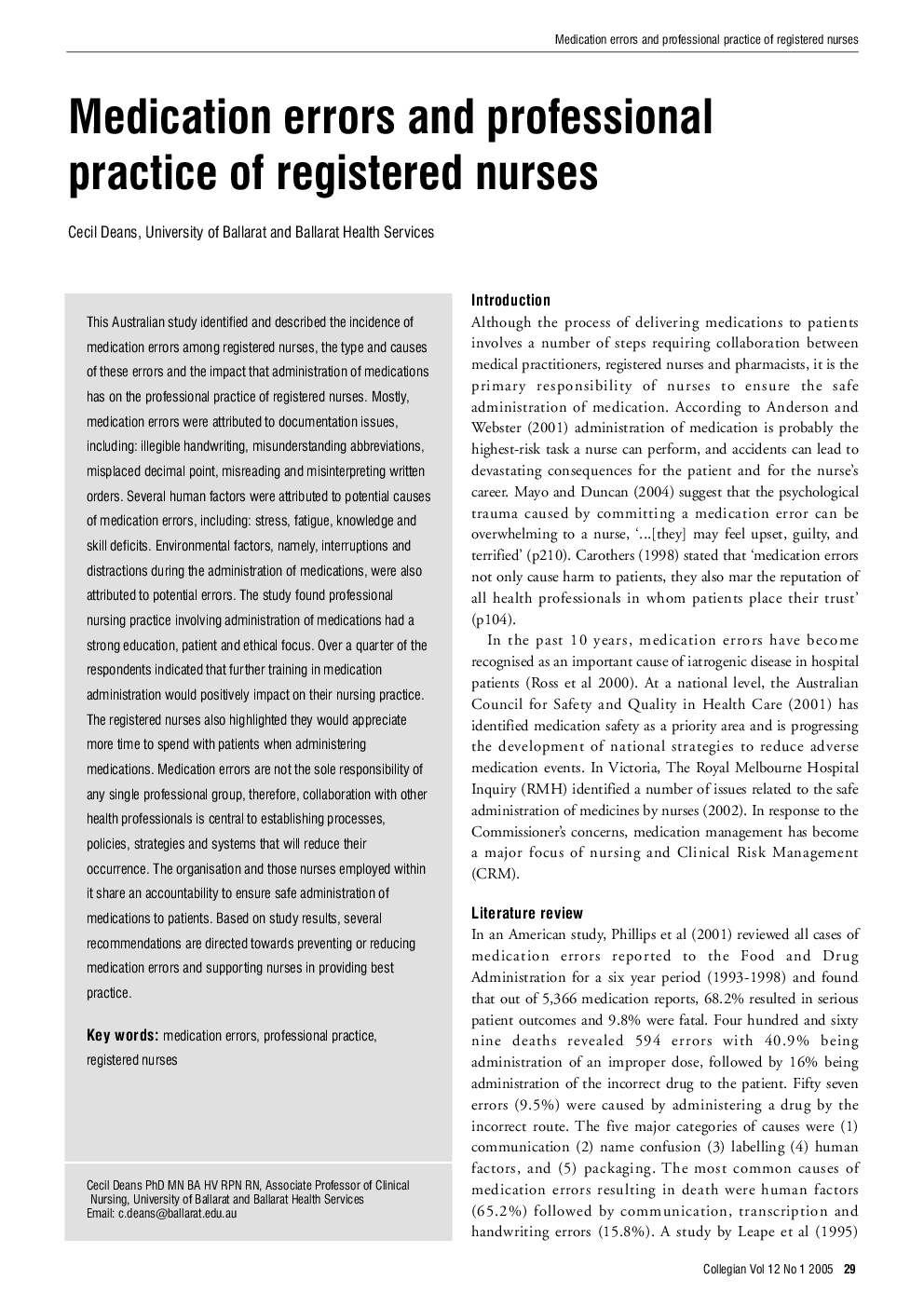| Article ID | Journal | Published Year | Pages | File Type |
|---|---|---|---|---|
| 9056199 | Collegian | 2005 | 5 Pages |
Abstract
This Australian study identified and described the incidence of medication errors among registered nurses, the type and causes of these errors and the impact that administration of medications has on the professional practice of registered nurses. Mostly, medication errors were attributed to documentation issues, including: illegible handwriting, misunderstanding abbreviations, misplaced decimal point, misreading and misinterpreting written orders. Several human factors were attributed to potential causes of medication errors, including: stress, fatigue, knowledge and skill deficits. Environmental factors, namely, interuptions and distractions during the administration of medications, were also attributed to potential errors. The study found professional nursing practice involving administration of medications had a strong education, patient and ethical focus. Over a quarter of the respondents indicated that further training in medication administration would positively impact on their nursing practice. The registered nurses also highlighted they would appreciate more time to spend with patients when administering medications. Medication errors are not the sole responsibility of any single professional group, therefore, collaboration with other health professionals is central to establishing processes, policies, strategies and systems that will reduce their occurrence. The organisation and those nurses employed within it share an accountability to ensure safe administration of medications to patients. Based on study results, several recommendations are directed towards preventing or reducing medication errors and supporting nurses in providing best practice.
Related Topics
Health Sciences
Medicine and Dentistry
Public Health and Health Policy
Authors
Cecil (Associate Professor of Clinical Nursing),
